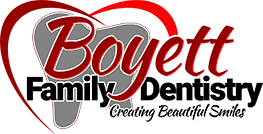
Let us brighten your smile!
Dental hygiene is the practice of keeping the mouth and teeth clean to prevent dental problems such as cavities, gum disease, and bad breath. Daily preventive care, such as brushing and flossing, will greatly enhance the overall health of teeth, along with regularly seeing your dentist or oral hygienist. Maintaining good oral hygiene is one of the most important things you can do for your overall health, breath, and teeth. Daily preventive care will assist in stopping problems – such as gum disease, tooth decay, and cavities – that threaten the health of your mouth.
Hygiene Aids
Dental Flosses
Dental floss is the most common interdental and subgingival (below the gum) cleaner and comes in a variety of types and flavors. The floss itself is made from either thin nylon filaments or polyethylene ribbons, and can help remove food particles and plaque from between the teeth. Vigorous flossing with a floss holder can cause soft tissue damage and bleeding, so great care should be taken. Floss should normally be used twice daily after brushing.
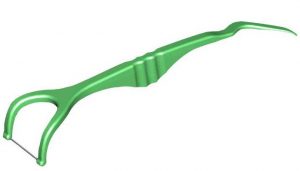
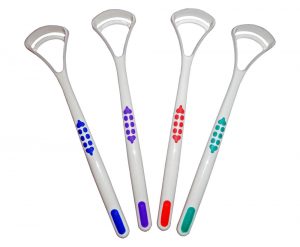
Tongue Cleaners
Tongue cleaners are special devices which have been designed to remove the buildup of bacteria, fungi and food debris from the tongue surface. The fungi and bacteria that colonize on the tongue have been related to halitosis (bad breath) and a great many systemic diseases like diabetes, heart disease, respiratory disease and stroke. Tongue cleaners can be made from metal, wood or plastic and shaped in accordance with the contours of the tongue. Tongue cleaning should be done prior to brushing to prevent the ingestion of fungi and bacteria.
Mouth Rinses
There are two basic types of mouth rinse available: cosmetic rinses which are sold over the counter and temporarily suppress bad breath, and therapeutic rinses which may or may not require a prescription. Therapeutic rinses are regulated by the FDA and contain active ingredients that can help reduce bad breath, plaque, and cavities. Mouth rinses should generally be used after brushing.
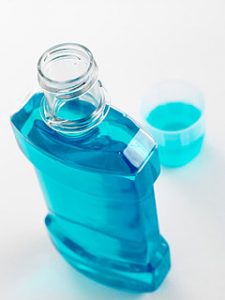
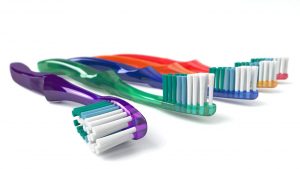
Toothbrushes
There are a great many toothbrush types available. Electric toothbrushes are generally recommended by dentists because electric brushes are much more effective than manual brushes. The vibrating or rotary motion helps to easily dislodge plaque and remove food particles from around the gums and teeth. The same results can be obtained using a manual brush, but much more effort is needed to do so.
Manual toothbrushes should be replaced every three months because worn bristles become ineffective over time. Soft bristle toothbrushes are far less damaging to gum tissue than the medium and hard bristle varieties. In addition, an appropriate sized ADA approved toothbrush should be chosen to allow proper cleaning of all the teeth. Teeth should ideally be brushed after each meal, or minimally twice each day.
If you have any questions about oral hygiene aids, please ask your dentist or dental hygienist.
Make your dream smile a reality!
Call or book your appointment today
